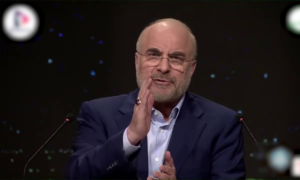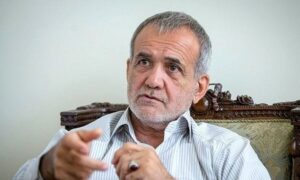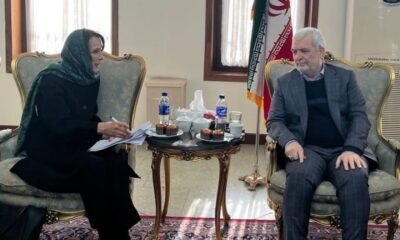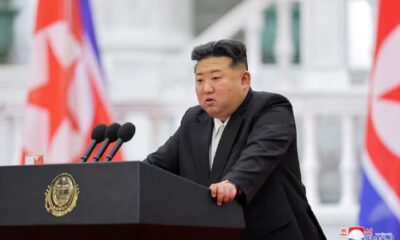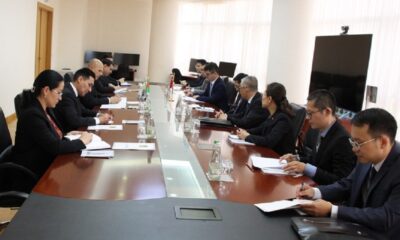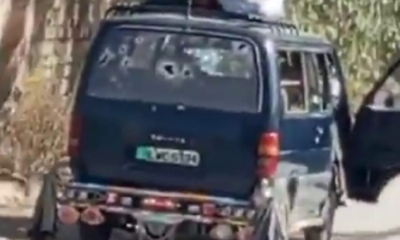Regional
Iran’s presidential election dominated by Khamenei loyalists
The election coincides with escalating regional tensions due to the Israel-Hamas conflict, increased Western pressure on Iran over its rapidly advancing nuclear programme, and growing domestic dissent

Iranians choose a president on Friday in a tightly controlled election following Ebrahim Raisi's death in a helicopter crash last month, with the outcome expected to influence the succession to Ayatollah Ali Khamenei, Iran's top decision-maker.
With Iran's supreme leader now 85, it is likely that the next president will be closely involved in the eventual process of choosing a successor to Khamenei, who has ensured candidates sharing his hardline views dominate the presidential contest, Reuters reported.
The election coincides with escalating regional tensions due to the Israel-Hamas conflict, increased Western pressure on Iran over its rapidly advancing nuclear programme, and growing domestic dissent over political, social, and economic crises.
However, the looming succession to the fiercely anti-Western Khamenei is the overriding concern among Iran's clerical elite, Reuters reported.
The Guardian Council, a vetting body of clerics and jurists aligned to Khamenei, has approved five hardline and one low-profile moderate candidates from an initial pool of 80.
Iran’s presidential election comes after the death of president Ebrahim Raisi in a helicopter crash last month
Prominent among the hardliners are Mohammad Baqer Qalibaf, parliament speaker and former head of the powerful Revolutionary Guards, and Saeed Jalili, a former nuclear negotiator.
The sole moderate candidate, Massoud Pezeshkian, has the endorsement of Iran's politically-sidelined reformist camp.
Khamenei has not backed any candidate publicly. However, his adviser Yahya Rahim Safavi has urged voters to elect "a president whose views do not conflict with those of the supreme leader," state media reported.
"The people should choose a president who considers himself the second in command ... The president should not create division," said Safavi, a former chief commander of the Guards.
While the president's role has a high international profile, real power rests with the supreme leader, who has the final say on state matters like foreign or nuclear policies and controls all branches of government, the military, media and the bulk of financial resources.
Raisi was widely seen as a potential successor to Khamenei, and his sudden death has sparked a race among hard liners seeking to influence the selection of Iran's next top leader.
RELATED STORIES
Ghalibaf says to solve Iran’s social issues, a wall should be built on border with Afghanistan
Iranian presidential candidate vows to prevent entry of Afghan migrants if elected
Regional
Gunmen attack Pakistan passenger vehicles, killing at least 38 people

Gunmen opened fire on passenger vehicles in a tribal area in northwestern Pakistan on Thursday, killing at least 38 people and wounding 29, the chief secretary of the Khyber Pakhtunkhwa province, Nadeem Aslam Chaudhry, said.
Reuters reported that among the fatalities in the attack, which occurred in the Kurram tribal district, were a woman and a child, Chaudhry said, adding: “It’s a major tragedy and death toll is likely to rise."
No group claimed responsibility for the incident.
"There were two convoys of passenger vehicles, one carrying passengers from Peshawar to Parachinar and another from Parachinar to Peshawar, when armed men opened fire on them,” a local resident of Parachinar, Ziarat Hussain told Reuters by telephone, adding that his relatives were travelling from Peshawar in the convoy.
President Asif Ali Zardari, in a statement, strongly condemned the attack on passenger vehicles.
Regional
Pakistan’s ex-PM Imran Khan gets bail in state gifts case, his party says

A court in Pakistan granted bail to jailed former prime minister Imran Khan in a case relating to the illegal sale of state gifts, his party said on Wednesday.
Khan, 71, has been in prison since August 2023, but it was not immediately clear if the embattled politician would be released given that he faces a number of other charges too, including inciting violence against the state, Reuters reported.
"If the official order is received today, his family and supporters will approach the authorities for his release," one of his party's lawyers, Salman Safdar, told journalists. Safdar added that, as far as he knew, Khan had been granted bail or acquitted in all the cases he faced.
However, Information Minister Attaullah Tarar, a member of the ruling Pakistan Muslim League-Nawaz party, told Geo TV Khan lacked bail in cases in which he is charged with planning riots by his supporters in the wake of his arrest in May last year.
Khan denies any wrongdoing, and alleges all the cases registered against him since he was removed from power in 2022 are politically motivated to keep him in jail.
The case in which he was granted bail on Wednesday by the Islamabad High Court is known as the Toshakhana, or state treasury case.
It has multiple versions and charges all revolving around allegations that Khan and his wife illegally procured and then sold gifts worth over 140 million rupees ($501,000) in state possession, which he received during his 2018-22 premiership.
Khan and his wife, Bushra Bibi, were both handed a 14-year sentence on those charges, following a three-year sentence handed to him in late 2023 in another version of the same case.
Their sentences have been suspended in appeals at the high court.
The gifts included diamond jewellery and seven watches, six of them Rolexes - the most expensive being valued at 85 million rupees ($305,000).
Khan's wife was released last month after being in the same prison as Khan for months.
Regional
Iran keeping ‘door open’ to talks with Trump
Iran’s deputy foreign minister said that coercion and intimidation would prove ineffective in the long-running stand-off between Iran and the West over Tehran’s nuclear programme
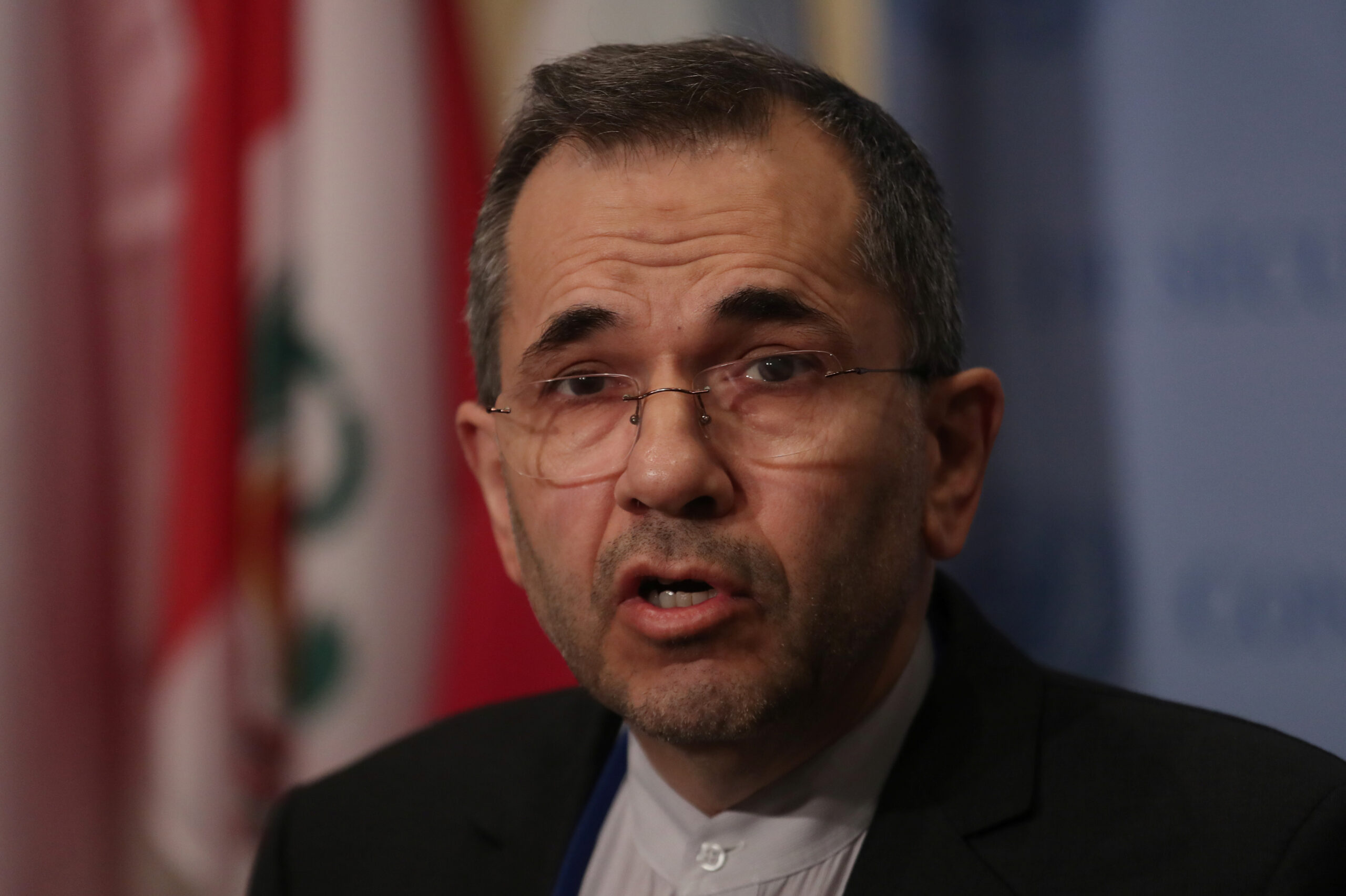
Majid Takht-Ravanchi, Iran’s deputy foreign minister for political affairs says Tehran has kept the door open to negotiations with President-elect Donald Trump’s administration, while warning the US that any attempt to reimpose “maximum pressure” on the country would fail to extract concessions.
Speaking to the Financial Times, Takht-Ravanchi said that coercion and intimidation would prove ineffective in the long-running stand-off between Iran and the West over Tehran’s nuclear program.
“As for negotiations, we need to observe US policy and decide how to respond accordingly,” Takht-Ravanchi said.
“Right now, the key question is how the new administration will approach Iran, the nuclear issue, regional security and the Middle East. It’s premature to speculate about specific outcomes.”
Takht-Ravanchi said the nuclear deal reached with the West in 2015, from which Trump later withdrew the US, “could still serve as a foundation and be updated to reflect new realities”, adding that “if the other parties return to their commitments, we have repeatedly said that we are willing to do the same”.
He added: “We do favour negotiations, as we proved [with that deal] . . . But who sabotaged the negotiations previously? It was the Trump administration who was unwilling to negotiate.”
At the same time, the veteran diplomat and former nuclear negotiator warned that if Trump again takes a tough approach, “maximum pressure will be met with maximum resistance”.
“We will continue to work around sanctions, diversify our trade partners and strengthen regional relations to maintain calm,” he added.
During his first term as US president, Donald Trump sparked a nuclear stand-off with Iran after he abandoned the 2015 accord, known as the JCPOA, that Tehran had signed with world powers, and imposed waves of sanctions on the Islamic republic in what he called a “maximum pressure” campaign.
He accused Tehran of violating the “spirit” of the agreement by funneling newfound revenue to support its regional proxies, notably Lebanon’s Hezbollah.
In retaliation, Iran dramatically expanded its nuclear activities, and is enriching uranium near to weapons-grade despite insisting its programme is for civilian purposes, Financial Times reported.
People familiar with Trump’s thinking have told the Financial Times his administration would try to “bankrupt” Iran to force the republic into talks.
The regional and nuclear crises have stoked fears in Tehran that Trump will once again try to drive Iran’s oil exports — its vital source of hard currency — to zero. In recent years Iran has substantially increased oil sales, mainly to China.
Takht-Ravanchi sought to downplay the potential for tighter oil sanctions under a second Trump presidency.
“While developments may occur, they won’t lead to significant changes,” he said, adding: “If the Trump administration decides to pursue the maximum pressure policy in the oil market again, it will surely fail. In today’s world, no single country can dictate terms to the entire international community.”
For now, he said, “We hope he doesn’t repeat the same mistake because the outcome will be no different.”
-

 Sport5 days ago
Sport5 days agoAbu Dhabi’s thrilling T10 tournament just days away
-

 World5 days ago
World5 days agoBiden allows Ukraine to use US arms to strike inside Russia
-

 Sport4 days ago
Sport4 days agoAfghanistan beat UAE by 169 runs in U19 tri-series
-

 Latest News3 days ago
Latest News3 days agoTajikistan trumps Afghanistan 3-1 in football friendly
-
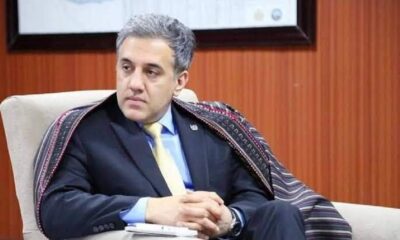
 Latest News4 days ago
Latest News4 days agoTwo Afghan diplomats posted to Germany under former government resign
-
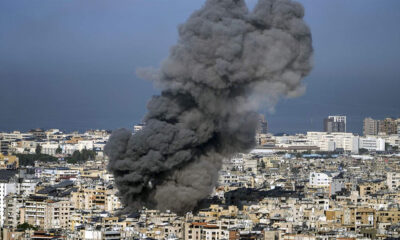
 World4 days ago
World4 days agoLebanon, Hezbollah agree to US proposal for ceasefire with Israel, Lebanese official says
-
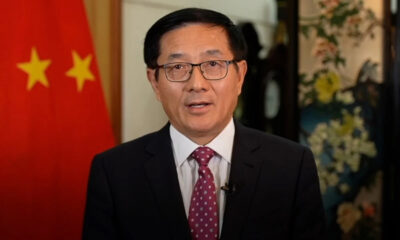
 Latest News4 days ago
Latest News4 days agoChina’s envoy says Beijing never interferes in Afghanistan’s internal affairs
-

 Latest News3 days ago
Latest News3 days agoEU marks International Children’s Day, says it supports Afghan children


